Every day, a family picks up and leaves their house in the suburbs of America and heads north. They are heading to the wild, untamed earth in Alaska. It is one of the last places in the United States that has thousands of acres of land available for a reasonable price.
[the_ad_placement id=”in-text-1-type-r”]Living off the grid in Alaska is a dream many people have, but only few are brave enough to take the huge leap of faith and do it. Living in an area that is still virtually untouched by humans is exciting, freeing and a little intimidating. Because the land is so remote, people who are buying land and building homes in the beautiful forest land must be prepared to be off the grid.
Off the grid means you are on your own. You do not have access to public utilities. It is you and the nature. There aren’t any meters outside the home, no power lines running to and from and no underground cables. It is truly getting back to basics and enjoying this beautiful land without unsightly signs of civilization.
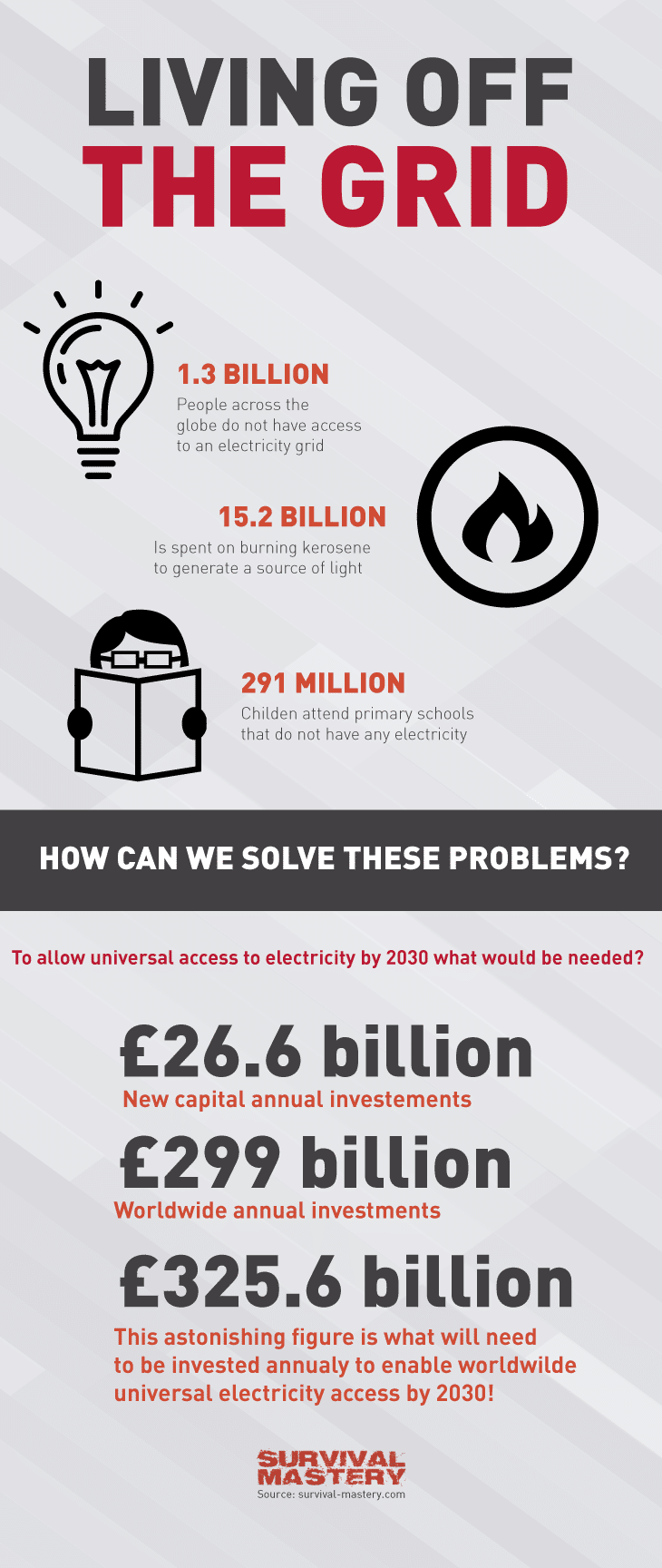
Before you head off to Alaska, there are a few things you need to know to ensure you are successful. There are plenty of people who have made the leap and failed. They were miserable and ended up packing up and moving back into those suburbs so many others are trying to get out of. Don’t be one of the people who couldn’t make it. Prepare yourself by following these 10 tips.
Find the right land #1
This is by far the hardest part of getting off the grid. Never buy a piece of land sight unseen. There are lots of parcels available that seem too good to be true, because they are. You are going to be completely self-reliant, which means you need a piece of land that will supply your basic necessities. There are several points to consider when you are looking for land to go off grid in Alaska.
Location
Before you start looking, decide just how far away from civilization you want to be. Some people say the farther the better, while others want to be off the beaten path, but still close enough to a town that they can make a day trip to get supplies. You also must decide the terrain. It isn’t all trees. There are some wide open spaces nestled in between the vast forests. Some people want to be surrounded by public lands. This is one way to ensure a mall isn’t going to be built next door.
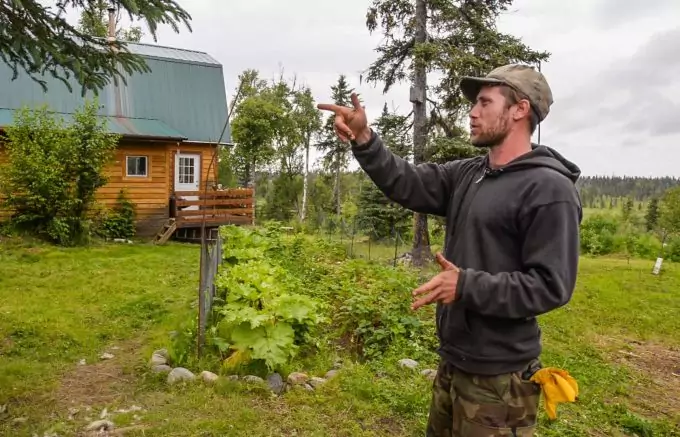
You also need to evaluate how much sunlight you are going to get. You will probably want to have a few solar panels to run things like a refrigerator or a hot water heater. See our article on fully powered solar home systems to help you. If you are going completely old school and are going to go without electricity altogether, that isn’t going to be an issue. However, you will likely need to have a garden to sustain you and if you are surrounded by trees, it is going to be tough to get the sun you need to your plants.
You also need to check on the zoning for the particular piece of land you have your eye on. Not every parcel can be built on. There are a lot of particulars about what you can and cannot do on land you own. You may be near a lake, but not legally be able to use it as a source of water. You may only be allowed to build a one-story home and so on.
Access
How will you get to your home? Will you need to use a small plane (which is actually pretty common in the Alaskan bush)? Is it boat access only? Roads to the house are probably not going to be there, unless you are buying land that has already been developed. In almost any scenario, you are going to need a reliable vehicle with 4WD. Snowmobiles or sleds are another option for getting to your home in the deep winter months.
Water
You have to have water to live. Carting in hundreds of gallons of water is not going to be an option if you are deep into the Alaskan wilderness. Fortunately, there are plenty of lakes and fresh springs in Alaska. For useful tips on how to make distilled water, check out our popular link. Your land will need to have access to one of these bodies of water. You need to make sure you have rights to use that water for your own needs. Rainwater catchment systems are another way to get the water you need to survive.
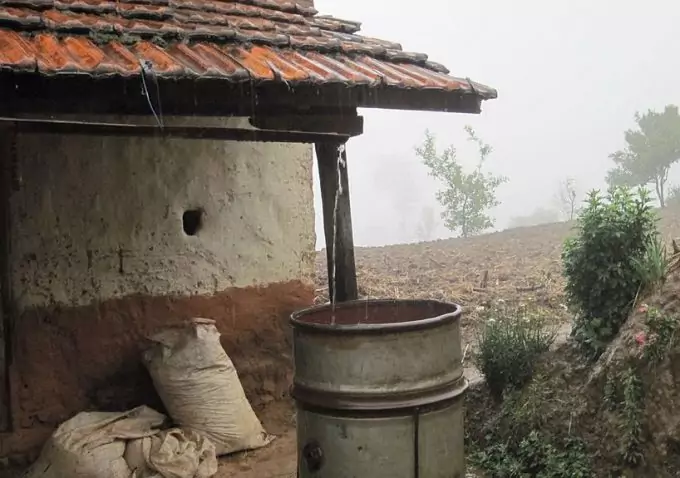
If you don’t have access to water, you will need to drill a well. However, you may not have the rights to drill a well on your land. This is why it is so important you know all the little details about the land you are looking at buying.
Temperature
Alaska is a big state. The further up north you go, the colder it is going to be. You need to decide just how cold you are willing to go. In some areas, 40 to 60 degrees below zero is very possible. The arctic and interior areas of Alaska are extremely cold in the winter. You must be well prepared to ride out the winter in the safety of your home.
Preparing to be alone—really alone #2
Living off grid in Alaska means you are going to have a lot of peace and quiet. The occasional visit from friends and family is going to be non-existent. You are not going to be dealing with salesmen. In fact, you are not going to be dealing with anybody. For some, the isolation is too much. It may all seem romantic and exciting while you sit in your residential neighborhood and listen to the sounds you take for granted.
[the_ad_placement id=”in-text-2-type-r”]In the bush or off the grid, it is quiet. The only sounds are the musical tunes of nature. You have to be ready to really embrace the isolation. In many parts of Alaska, cell phone service is not possible. When you are off the grid in Alaska, you won’t have regular phone service either. You can have a satellite installed to access the internet, but it will be limited by the weather.
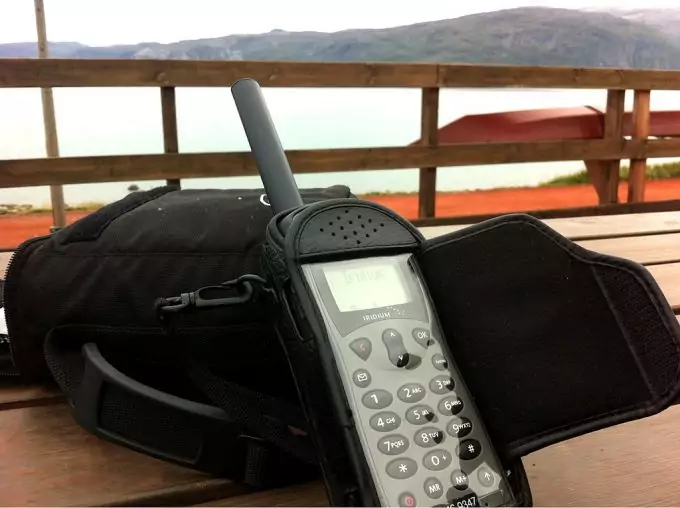
If you are moving with your family, you will have some company. Having a few pets is another way to fight off the lonely blues. Write letters and schedule times when you can talk with friends and family. You will still have neighbors (albeit a few miles away at least) and it would be a good idea to learn their names and have occasional gatherings.
Accept nature #3
Nature was there first. You must be willing to accept that. Bears, deer, moose and a whole host of other animals call Alaska home. You are coming into their territory. In most cases, they are going to leave you alone as long as you return the favor. However, there are going to be times you get in their way and they get in yours. Pick your battles wisely.
Living in Alaska, off the grid, means you are on your own. You don’t want to pick a fight with a bear, end up on the losing end and have to wait for help to arrive. Respect the boundaries. Putting up fences around your garden area is not always going to be effective. You will probably end up sharing your produce with the local wildlife until you figure out how to keep the animals at bay. Don’t let it get you down. Plant extra and plan on sharing.
Learn how to go grocery shopping #4
Sure, you know how to go grocery shopping, but when living in rural Alaska, it is an art. You must buy enough groceries to last your family for several weeks or months depending on how remote you are. You can’t run to the store for a gallon of milk. That means you either rely on instant milk or go without. You will be doing a lot of cooking from scratch. You will want a nice supply of ingredients like flour, sugar, butter and so on.
You will need a good supply of non-perishables, like canned foods and such. If you are going to be using solar power, there are going to be some long weeks where the sun is blocked by clouds and heavy snowfall. You must be prepared not to have the luxury of electricity.
Get used to the dark #5
If you are moving to the northern corners of Alaska, prepare to be living in the dark for days on end. The interior of Alaska has some pretty short days in the winter as well. It can be depressing. It does wreak havoc on your mental health. Humans require sunlight to thrive.
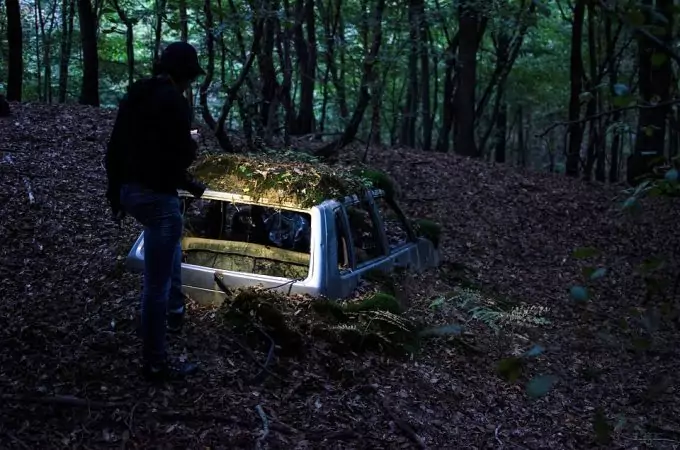
On the flip side of the short days in winter, if your land is near the Arctic Circle, summer days are unending. In fact, for places like the Barrow area, the sun is out for 24 hours all summer long. Seriously, three months of daylight. This can be a huge welcome after a long, dark winter. In fact, you may welcome those dark days.
Get a hobby #6
When the long winter drives you indoors, you can quickly become bored. Cabin fever takes on a whole new meaning when you are truly confined to your cabin. There are plenty of hobbies that will keep your mind and hands busy. Once you pick your hobby, stock up on the supplies you need to keep going for several months. Whether you are thinking about sewing, knitting, painting or leather working, get the tools and materials you need when you visit town. Have backups just in case a piece of equipment breaks. Have lots of books on hand as well.
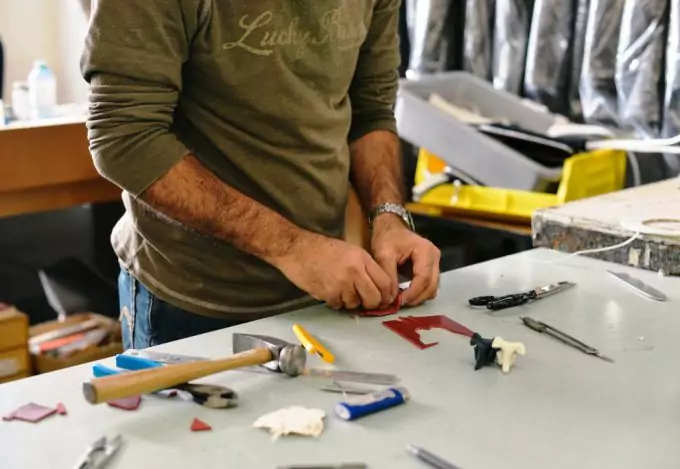
You don’t want to get stuck inside and literally go stir crazy. People who have tried living off the grid will tell you the long days and nights are tough to take when you are used to having other things keep you busy.
Prepare to garden #7
During the summer, you will need to grow food that you can preserve for the winter months. It will give you a purpose and really help get you in tune with Alaska. Obviously, gardening in Alaska is going to pose some challenges.
Investing in a greenhouse or building your own is a very good idea. It will extend the growing season and allow you to grow crops that are going to be very hard to come by in Alaska. You will find prices at the grocery store for fresh produce are much higher than you would find in the lower 48. Growing your own food will help cut down on the grocery bill.
Outhouses—Learning to love them #8
When you think about buying your dream home, it probably doesn’t include an outhouse for a toilet. One of the perks, if you will, is outhouses. Septic systems are a rare commodity for homes that are way off the grid. Outhouses are extremely common in the Alaskan community for off the grid homes. Running water is a rare commodity as are flushing toilets.
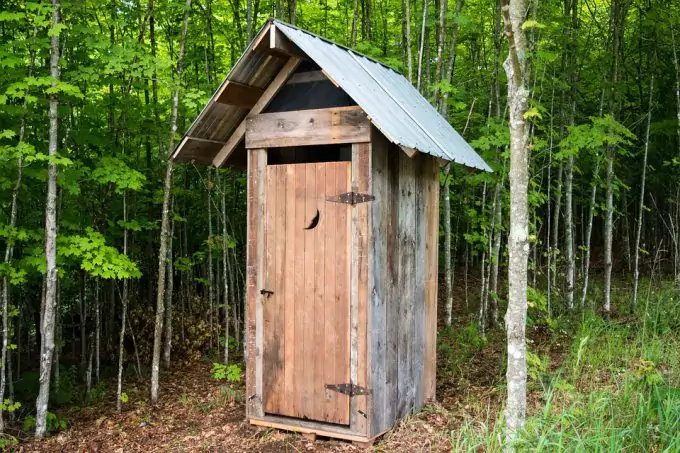
How you set up your outhouse is up to you. People typically like to place them a little far from the house simply because they can be a little stinky. That isn’t your only option. Composting toilets are an option for an indoor toilet. They are actually very easy to use and truly little to no odor at all.
Some people cannot get their minds around using an outhouse and yes, it can be problematic in the dead of winter, which is why the compost toilet is an ideal option. There is always going to be some compromises. Using an outhouse isn’t necessarily a dream for many, but living out in the quiet and being very close to nature is a perk that is well worth it.
For steps on how to build an outhouse, check out the link and be amazed how easy it can be.
Prepare to cut and stack a LOT of wood #9
Wood heat is the way to go in Alaska. Fortunately, with miles and miles of forest and trees covering the area, there is plenty of wood. If you have never had to cut wood with a chainsaw, split it with an ax and then stack it in neat little piles, you need to be prepared for a lot of work. This is a job that takes all summer.
The minute the weather starts to warm, it is time to start thinking about your wood supply next year. You cannot afford to run out of wood in the winter. It will be your only source of heat. When it is 40 below outside, you can’t just wrap up in a blanket and tough it out.
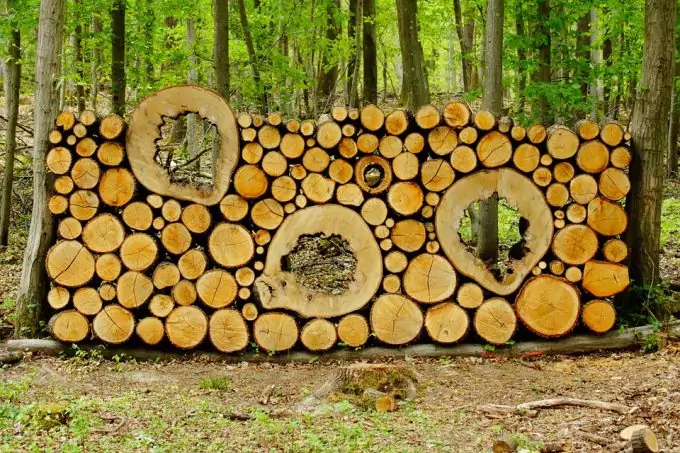
If you are planning on having somebody doing the cutting for you, prepare to pay big money. Depending on where you plan on living, you could burn through 5 to 15 cords of wood in one winter. You could always rely on oil to heat the home, but it can be expensive and when you are out, you need a backup plan if you can’t get into town right away.
It isn’t that cheap #10
Many people move to Alaska with the dream of living off the land and living a relatively debt free life. Once they move in, they realize it isn’t easy living off the land and buying things that are normally very inexpensive at the local Wal-Mart are double or triple in price in the remote towns of Alaska. If you are moving close to one of the larger cities, like Anchorage, the cost of living is similar to that of anywhere in the lower 48 states.

You can cut costs by planning those shopping trips and stocking up on all the essentials to cut down those emergency buys from the smaller towns. Learning how to grow your own food and how to hunt will also save you a great deal of money. Many people buy the land and home outright so they are not strapped with a mortgage payment. If you can do that, you will be setting yourself up for success.
[the_ad_placement id=”in-text-3-type-r”]The key to remember is you are paying lower taxes and enjoying the beauty of an area that is unscathed by humans and big cities. There are obviously going to be some trade-offs, but if you can dedicate yourself to making it work, you will reap the benefits of living in a remote area, off the grid in Alaska.
If you can’t picture yourself riding a snowmobile into town or using a boat to get to work, you can live on the outskirts of one of the larger cities and still be off the grid. In fact, it may be good practice for you.
When you have mastered the art of dry living, you can head off to parts unknown and make a real go of it. Alaska is truly one of the last frontiers and one of the last places on this earth a person can really get away from it all and live life to the fullest the way nature intended.
For more guidelines and tips on how to prepare for winter storms, click the link to this important topic.





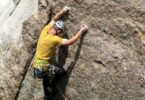
Loneliness is troublesome, but with music, business, and taking care of I myself; I can easily fight it off. Living in nature has its allure and is quite spiritually rewarding. I agree with the idea of owning the land entirely from the start.
Hi Corey,
Land ownership can be a hassle at first but once you’ve read through the applicable laws and regulations, buying your first parcel of land should be easy enough.
Regards,
Samuel
Hi Corey,
Land ownership can be a hassle at first but once you’ve read through the applicable laws and regulations, buying your first parcel of land should be easy enough.
Regards,
Andrew
Enjoyed the article, Alaska is not for the faint of heart, bought raw undeveloped land covered in trees nestled far from neighbors here in Anch Ak, built an off grid tiny house, Now dealing with the municipality, ugh! Anyone want to purchase some beautiful property right here in Anchorage?? seriously, $50,000 and it is all yours…tired of dealing with the municipality who do not even know there own laws, telling me I can not have my goats, when I sure the heaven can…I have to tell them their own codes and look them up and email them to tell them how goats, chickens are legal as well as miniature horses/ Good news is I also bought land out past Sheep Creek , so I will start next summer building my off grid dream home, complete with gardens, chickens, goats ,ducks, flowers, bees, I am very excited.
The further you are from the city the more relaxed the building codes are…Of course my family , friends are in Anchorage, so I will visit and stock up on groceries and supplies….
Go off grid.
Thank you, Kathryn, for sharing your opinion with us.
I’m going to proceed with what you have written about. Any good links on land without covenants for such living ? . Thanks.
Thanks Brent, for showing interest in our community. In most cases, your very survival will depend entirely on your preparation. Our post simply guides you on what to do.
As a Swedish family. Would it be possible to take that step without any laws killing the dream?
Living off the grid is something that you can possibly try anywhere, but there are always rules on every land.
Are there people in Alaska that will teach you how to survive in Alaska? We live in Oklahoma and I have a degree in forestry /science, we know how to hunt and fish but I’m sure it’s different there. Interested in moving off grid and being able to do better than just survive
You can easily find experienced individuals who can advise you better at National Parks and well-known campsites.
I feel like Alaska is pulling me to it. I live in Texas I LOVE the cold and dark I want to live 100% off grid. I am doing my research and learning everything I can about alaska however i know it will be entirely different actually living there and doing it. I am wondering if they have any programs or such where you can stay a year and see if it’s the best fit for you. I am hard of hearing and wear a prothesthic leg (since I was a child) when I was 6 years old I saw a show on alaska and I’ve wanted to live there since. ♡
Hi Harley,
Living off the grid is not easy, and certainly not for everyone, especially if you know so little about the place. We have provided you with the most crucial tips you will need to live off the grid in Alaska. However, you can gather more useful info regarding people with special needs from experienced individuals who have actually lived off grid in Alaska or from the natives.
I have to use an electric wheelchair and also have a manually driven wheelchair, I have been wanting to live off grid since leaving the marines a few years ago. I have been watching television programs about doing that, like homestead rescue, life below zero, etc. Also have been storing up supplies so I can start on the right path. I would like the best advice as to how to get started on finding a few acres of land near water that I can use along with lumber that can used for my new home.
My problem, is that I’m in a wheelchair and fear that might hinder my efforts to live as I want. Any suggestions as to how this can be solved? Also for obvious reasons, I cant drive and live in Texas so I’ll be using a uhaul truck with someone else driving. Is there a drop off for the truck? And one more question, is there land that was used, but the folks left cuz they could not make a go of it?